How to Renew the Engine of Life - Cardiac Aging Academic Conference held in Beijing
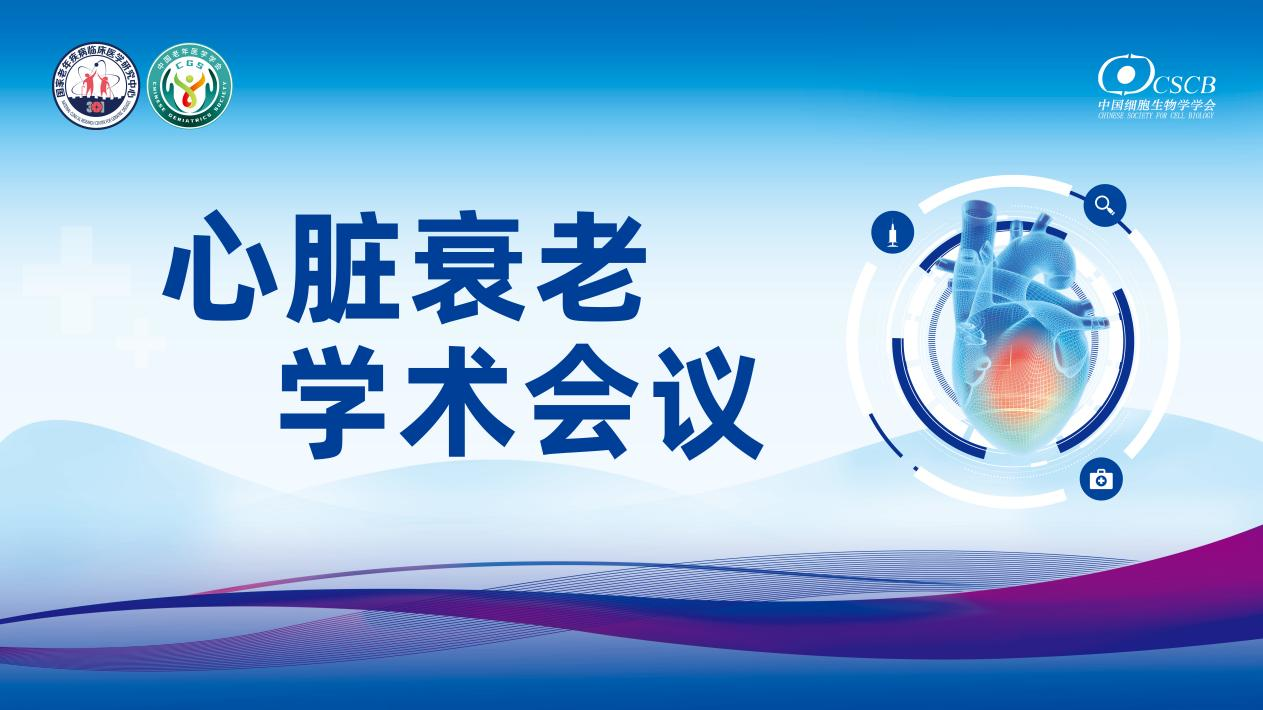 On December 17, 2024, the "Academic Conference on Cardiac Aging (Beijing 2024)" co-sponsored by the Digital Diagnosis and Treatment Branch of the Chinese Geriatric Society, the National Clinical Medical Research Center for Geriatric Diseases (PLA General Hospital), the Aging Cell Biology Branch of the Chinese Society for Cell Biology, and the China Aging Markers Research Consortium was successfully held.
On December 17, 2024, the "Academic Conference on Cardiac Aging (Beijing 2024)" co-sponsored by the Digital Diagnosis and Treatment Branch of the Chinese Geriatric Society, the National Clinical Medical Research Center for Geriatric Diseases (PLA General Hospital), the Aging Cell Biology Branch of the Chinese Society for Cell Biology, and the China Aging Markers Research Consortium was successfully held.
Under the background of the aging trend of population in our country, the aging of heart and related diseases pose a serious challenge to people's health and public health. Focusing on the important topic of cardiac aging, this conference aims to gather the wisdom of all parties to jointly explore the cutting-edge research and application of cardiac aging markers, in order to promote scientific progress and technological innovation in the cardiovascular field. It has attracted the active participation and support of well-known experts and scholars in geriatrics, cardiology, basic medicine and other fields. The conveners of the conference are Professor Lau Kwong Wai, Professor Cao Feng and Professor Lai Kin.
The experts participating in the meeting are Professor Fan Li, President of the Chinese Geriatric Society, Academician Gu Ning of the Chinese Academy of Sciences, Academician Zhang Xu of the Chinese Academy of Sciences, Professor Cao Chunmei of Beijing Institute of Clinical Medicine, Professor Cao Feng, Director of the National Clinical Medical Research Center for Geriatric Diseases (PLA General Hospital), Professor Chen Houzao of the Institute of Basic Medicine of the Chinese Academy of Medical Sciences, Professor Huang Xinglu of Nankai University, Professor Ji Yong, Harbin Medical University; Professor Kong Wei, Peking University Health Science Center; Professor Li Jian, Beijing Institute of Gerontology; Professor Li Zijian, Peking University Third Hospital; Professor Liu Guanghui, Institute of Zoology, Chinese Academy of Medical Sciences; Professor Nie Yu, Chinese Academy of Medical Sciences; Professor Song Moshi, Institute of Zoology, Chinese Academy of Medical Sciences; Professor Tang Yida, Peking University Third Hospital , Professor Tao Ling of Xijing Hospital of Air Force Military Medical University, Professor Tian Jinwei of the Second Affiliated Hospital of Harbin Medical University, Professor Wang Yuan of Beijing Anzhen Hospital of Capital Medical University, Professor Xu Ming of the Third Hospital of Peking University, Professor Yan Xiaoxiang of Ruijin Hospital of Shanghai Jiaotong University, Professor Yang Qi of Beijing Chaoyang Hospital of Capital Medical University, and Professor Yang Wei of Fuwai Hospital of Chinese Academy of Medical Sciences Prof. Xian, Prof. Zhang Hongjia, Beijing Anzhen Hospital, Capital Medical University; Prof. Zhang Weiqi, Beijing Institute of Genomics, Chinese Academy of Sciences; Prof. Zeng Chunyu, Dapping Hospital, Army Military Medical University; Prof. Zhou Jing, Peking University.
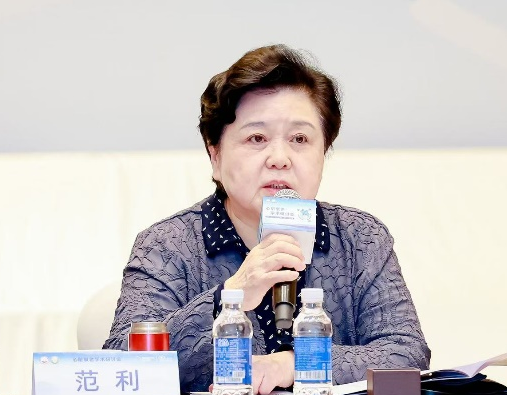
At the opening ceremony, Professor Fan Li, President of the Chinese Geriatric Society, first extended a warm welcome and sincere thanks to the experts and scholars attending this meeting. Professor Fan Li pointed out that this conference aims to bring together the wisdom of experts from all sides, in-depth discussion of the latest scientific research trends of cardiac aging, clinical challenges and future development direction, and hopes to promote the cooperation of participating experts, so as to make breakthroughs in the research and application of cardiac aging markers. To contribute to the development of gerontology and the implementation of strategies to actively respond to population aging.
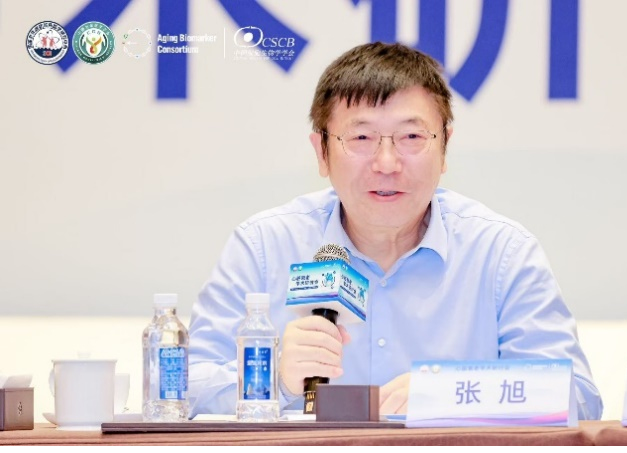
Academician Zhang Xu of the Chinese Academy of Sciences pointed out that with the aging of the population, heart aging has become a public health challenge, and it is necessary to strengthen basic research and clinical transformation to delay heart aging by scientific means and reduce the incidence of disease. Promote interdisciplinary research cooperation, integrate biological, medical, sociological and psychological knowledge, and comprehensively deal with the problem of cardiac aging, looking forward to the transformation of scientific research results into medical solutions, benefit patient groups, and contribute to healthy China and global health.
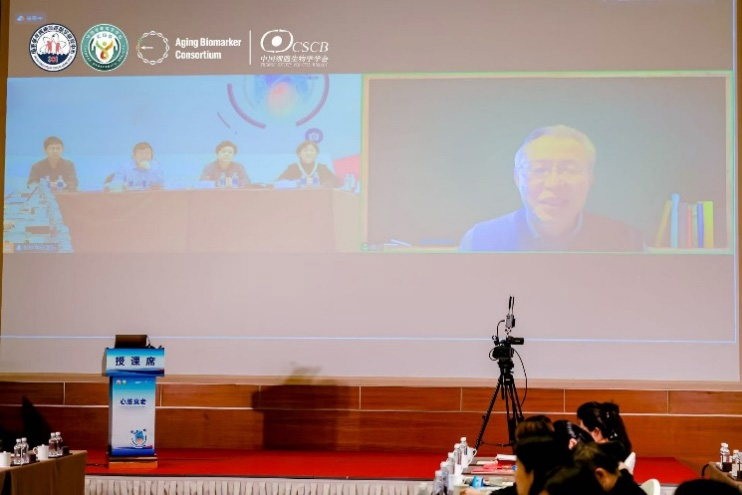
Gu Ning, Academician of the Chinese Academy of Sciences, pointed out that cardiac aging research is very important in the aging society, and cardiac aging markers are an important tool to understand the nature of aging and clinical assessment of risk. Academician Gu Ning pointed out that the new breakthroughs and developments in molecular mechanisms, physiological and pathological changes, marker screening and applied research shared by the participating experts will provide valuable clues and tools for understanding cardiac aging and clinical evaluation.
After the opening ceremony, Prof. Cao Feng, Prof. Zhang Hongjia, Prof. Xu Ming, Prof. Cao Chunmei, Prof. Zeng Chunyu, Prof. Yang Qi, Prof. Li Zijian, Prof. Zhou Jing and Prof. Li Jian presided over the academic presentation session.
Liu Guanghui, a researcher at the Institute of Zoology of the Chinese Academy of Sciences, led the keynote speech entitled "Programming and Reprogramming of Aging." The report points out that aging programming and reprogramming play a decisive role in the process of cellular aging and regeneration, especially in resisting environmental stress and maintaining tissue homeostasis, and these mechanisms are particularly critical to the regulation of cell fate.
Professor Kong Wei from the School of Basic Medicine of Peking University delivered a speech entitled "Microenvironmental Regulation of Atherosclerosis". In his report, Professor Kong introduced the regulatory mechanisms of microenvironment changes during the development of atherosclerosis and explored new strategies to intervene in atherosclerosis by regulating the microenvironment.
Professor Chen Houzao from the Institute of Basic Medicine of the Chinese Academy of Sciences delivered a speech entitled "Cellular Aging and Heart Disease," which detailed the role of cellular aging in the development of heart disease and explored new strategies to prevent and treat heart disease by intervening in the cellular aging process.
Professor Yan Xiaoxiang of Ruijin Hospital Affiliated to Shanghai Jiao Tong University School of Medicine delivered a speech entitled "Research on the occurrence mechanism and intervention of Coronary Heart disease event Chain". In the report, Professor Yan deeply discussed the whole process of coronary heart disease from the onset to clinical events, and introduced a series of relevant research results of his team.
Professor Wang Yuan from Beijing Anzhen Hospital, Capital Medical University, delivered a speech entitled "The role of abnormal metabolism of long chain acylcarnitine in acute myocardial infarction complicated with multiple branch lesions". In his report, Professor Wang discussed in depth the key role of abnormal metabolism of long chain acylcarnitine in multi-vessel disease of acute myocardial infarction.
Professor Tian Jinwei from the Second Affiliated Hospital of Harbin Medical University delivered a speech entitled "Mechanisms of Advanced Atherosclerosis Progression and Intervention strategies". In his presentation, Professor Tian systematically described the pathological changes of atherosclerosis during its late development and explored potential intervention strategies.
Professor Tao Ling, Xijing Hospital, Air Force Military Medical University, delivered a speech entitled "Heterochromatin in cardiovascular aging and disease." In his presentation, Professor Tao explored the role of heterochromatin in cardiovascular aging and disease, highlighting the advances in epigenetics research in this area.
Song Moshi, a researcher at the Institute of Zoology, Chinese Academy of Sciences, delivered a lecture titled "Strategies targeting cardiac aging and related pathologies." In the report, Dr. Song Moshi discussed the intervention strategies of cardiac aging and its related pathologies, focusing on the latest research progress in the fields of reducing myocardial inflammation, intervening myocardial fibrosis, promoting angiogenesis and cardiomyocyte regeneration.
Professor Ji Yong of Harbin Medical University delivered a speech entitled "Discovery of Targets for the prevention and treatment of aortic aneurysm/dissection". Professor Ji Yong revealed the localization of GSNOR in the mitochondria of cardiomyocytes for the first time, and confirmed that mitochondrial GSNOR affects mitochondrial function by regulating the mercaptonitration modification of mitochondrial protein ANT1, and participates in myocardial remodeling and heart failure process.
Professor Yang Weixian of Fuwai Hospital, Chinese Academy of Medical Sciences, delivered a speech entitled "Interventional Treatment of high-risk Coronary Heart disease in the elderly" at the academic conference. Professor Yang pointed out in the report that although large-scale clinical trials mostly excluded elderly patients, this study was designed to evaluate the safety and efficacy of interventional therapy and dual antiplatelet therapy in elderly patients with coronary heart disease over the age of 80.
In his speech, Zhang Weiqi, a researcher from the Beijing Institute of Genomics, Chinese Academy of Sciences, discussed the pathway of establishment of cardiovascular aging clock, the epigenetic regulatory mechanism of cardiovascular aging, and introduced the key factors regulating heart and blood vessel aging, and developed intervention strategies accordingly, providing new ideas for the prevention and treatment of cardiovascular aging and related diseases.
Professor Nie Yu of Fuwai Hospital, Chinese Academy of Medical Sciences, delivered a lecture entitled "Heterochromatin in cardiovascular aging and disease." In his presentation, Professor Nie Yu explored the role of heterochromatin in cardiovascular aging and disease, in particular Vcan, an extracellular matrix (ECM) component derived from cardiac fibroblasts (cFB) that activates integrin β1 and downstream signaling molecules, thereby promoting cardiomyocyte proliferation and cardiac repair.
Professor Huang Xinglu from the School of Life Sciences of Nankai University delivered a speech entitled "AI-driven Nanomedicine Design." In his report, Professor Huang described how his team used AI techniques to analyze key mechanisms in the field of nanodrug delivery, and developed a deep learning based single-vessel quantitative analysis technique (Nano-ISML) to quantitatively study the process by which nanoparticles travel through blood vessels to reach tumors.
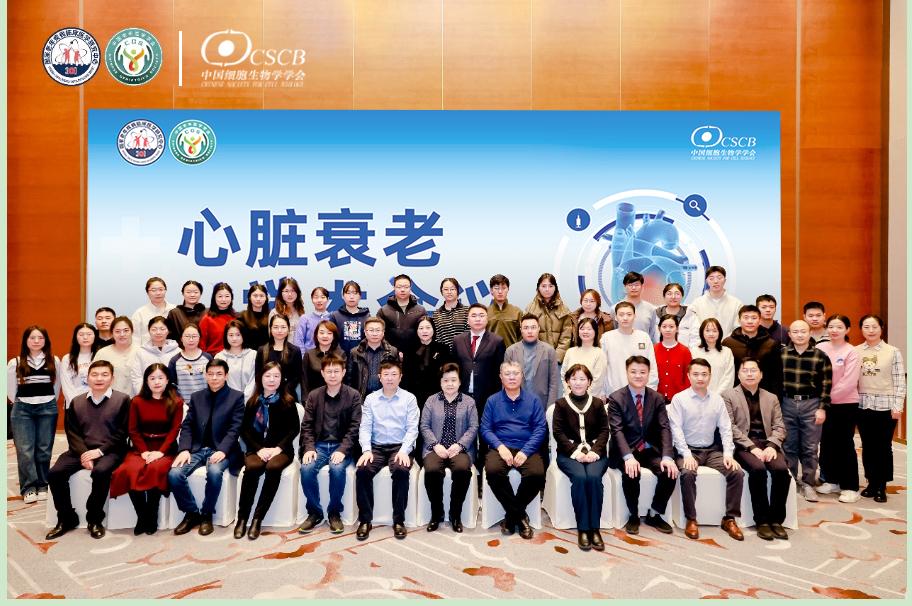
At the closing session of the meeting, the experts conducted an in-depth summary and discussion, and pointed out that the future research field of cardiac aging should continue to pay attention to basic research and clinical applications, and advocated the use of artificial intelligence technology to deepen the understanding of cardiac aging through interdisciplinary cooperation, in order to reveal the complexity of cardiac aging from different angles, and promote the transformation of basic research results into clinical applications. Thereby improving heart health and quality of life in older adults. This academic conference not only promoted academic research and exchanges, but also provided valuable guidance for clinical practice, and injected new vitality and wisdom into the field of geriatrics and heart disease prevention and control.

